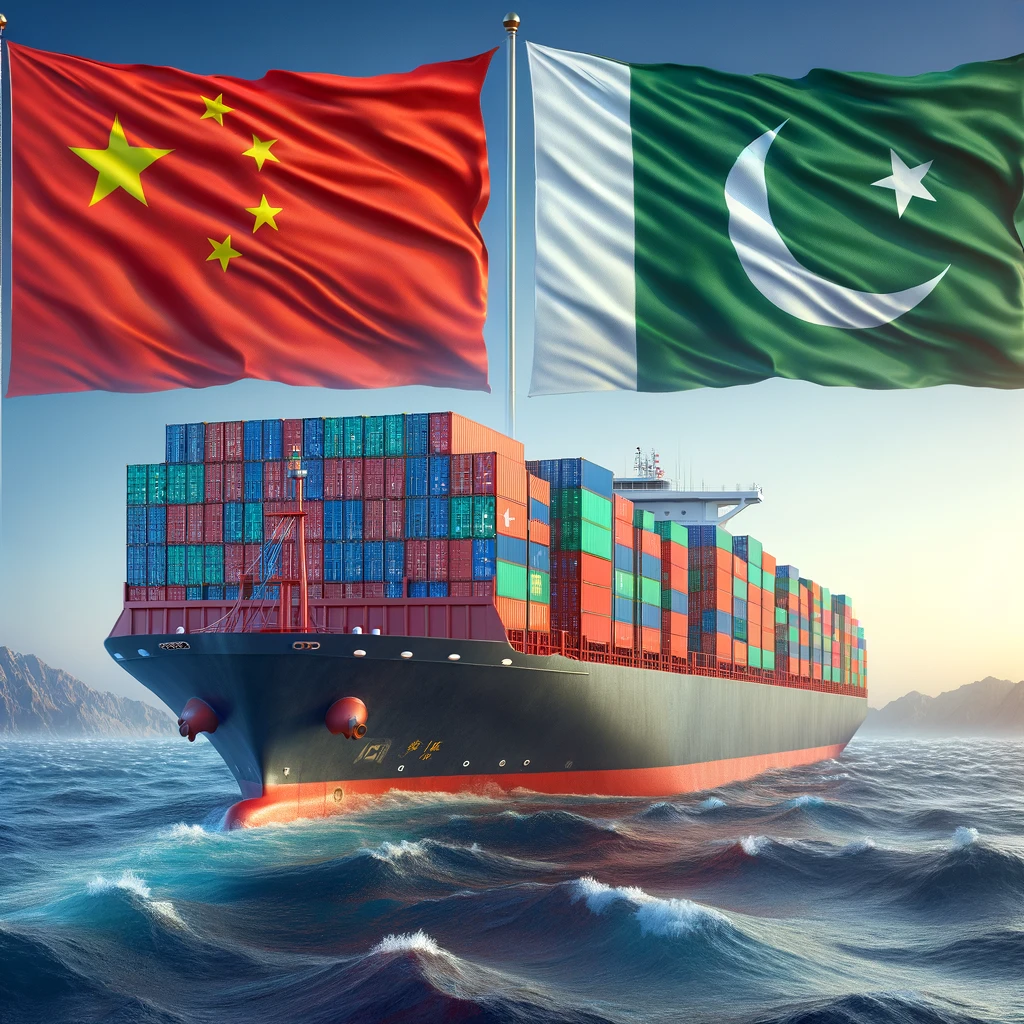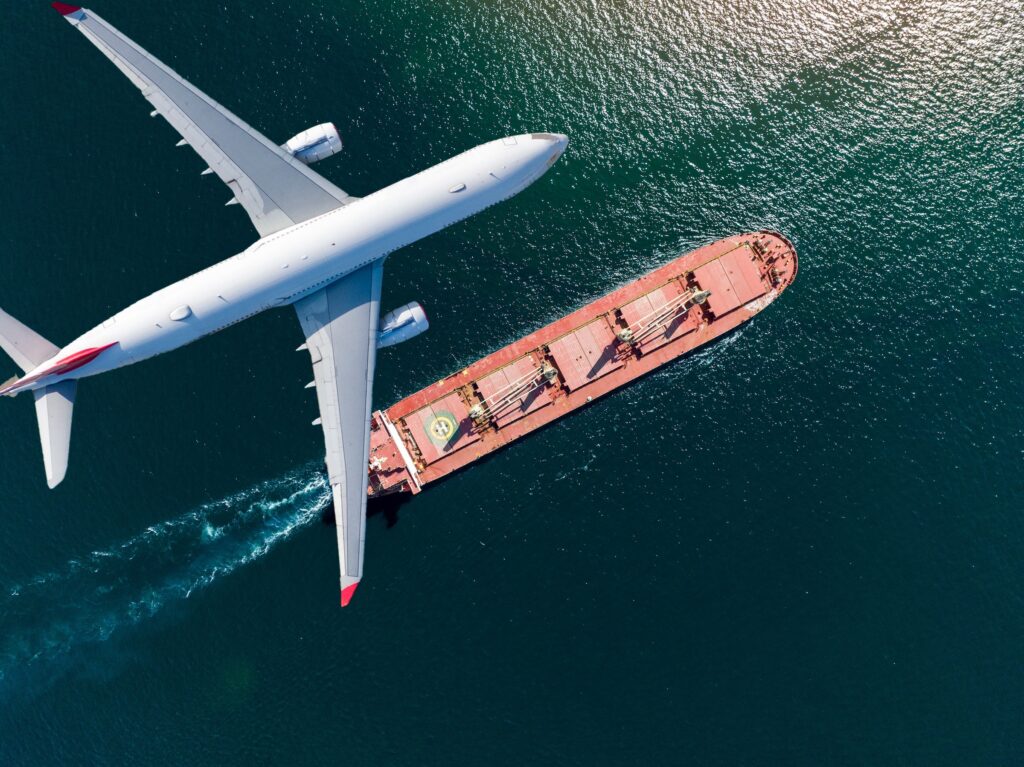- By TOP CHINA FREIGHT
- September 16, 2025
- Shipping
Table of Contents
Choosing the right freight forwarder China to Pakistan is essential for businesses managing complex import processes. With growing trade between both countries, companies must navigate customs compliance, delivery timelines, and rising freight costs. A reliable logistics partner ensures goods move efficiently, avoiding delays and unexpected charges.

What shipping methods connect China and Pakistan?
When trading between China and Pakistan, importers can choose from multiple freight options. Each method depends on urgency, cargo type, and budget.
| Method | Transit Time | Best Use | Pros | Cons |
|---|---|---|---|---|
| Sea Freight (FCL/LCL) | 15–25 days | Bulk or heavy goods | Economical, large capacity | Slower than air, port congestion |
| Air Freight | 3–7 days | Urgent or high-value products | Fast delivery, secure | Expensive, weight limitations |
| Multimodal (Sea + Truck) | 10–18 days | Mixed cargo needs | Balanced cost & speed | Complex handling, multiple transfers |
| Cross-Border Trucking | 8–15 days | Shorter distances, flexible | Door-to-door service, avoids port delays | Border inspections may cause slowdowns |
How much does it cost to ship from China to Pakistan?

Shipping costs depend on cargo volume, transport method, and seasonal demand. Moreover, additional surcharges such as customs duties and inland delivery must be considered.
| Factor | Impact on Cost |
|---|---|
| Cargo Type & Size | Heavy machinery vs. light textiles differ in price |
| Mode of Transport | Sea is cheaper; air is faster but costly |
| Peak Season Demand | Rates increase before Chinese New Year |
| Fuel Surcharges | Fluctuations raise ocean and air freight prices |
| Customs & Duties | Taxes and clearance fees add to landed costs |
| Inland Delivery in PK | Charges vary by destination city |
Example:
- 20ft container (FCL) from Shanghai to Karachi: USD 1,800–2,500
- 40ft container: USD 3,200–4,800
- Air freight (500kg general cargo): USD 3,000–5,000
What customs documents are required for Pakistan imports?

Pakistan enforces strict customs regulations to ensure compliance and avoid smuggling. Missing documents often delay shipments.
| Document | Purpose |
|---|---|
| Bill of Lading / Air Waybill | Proof of shipment ownership |
| Commercial Invoice | Declares product value for customs duty |
| Packing List | Lists cargo weight, dimensions, and contents |
| Import Declaration (WeBOC) | Required for Pakistan Customs system |
| Certificate of Origin | Confirms goods are from China |
| Product-Specific Certificates | For food, chemicals, or restricted items |
How long does shipping from China to Pakistan take?
Transit times differ based on the chosen shipping mode and departure/arrival routes.
| Route | Mode | Transit Time |
|---|---|---|
| Shanghai – Karachi | Sea (FCL) | 18–22 days |
| Shenzhen – Lahore (via air) | Air | 4–6 days |
| Guangzhou – Islamabad | Sea + Truck | 12–16 days |
| Beijing – Karachi | Air Express | 3–5 days |
Forwarders often use Karachi Port as the main entry hub, with inland trucking distributing goods to cities like Lahore, Islamabad, and Faisalabad.
Which Incoterms are best for China–Pakistan trade?
Incoterms define responsibilities between buyers and sellers. The choice impacts cost-sharing, insurance, and customs duties.
FOB (Free on Board):
Buyer pays freight & insurance after loading at China port.
CIF (Cost, Insurance, Freight):
Seller covers costs until Karachi port.
DAP (Delivered at Place):
Seller arranges transport to buyer’s location in Pakistan.
Many importers prefer FOB for transparency and better freight control.
What are the pros and cons of sea vs air freight?

| Aspect | Sea Freight | Air Freight |
|---|---|---|
| Cost | Economical for large shipments | Expensive, especially for bulky goods |
| Speed | 15–25 days | 3–7 days |
| Cargo Flexibility | Suitable for heavy & oversized loads | Best for light, high-value cargo |
| Reliability | Delays due to port congestion possible | More predictable and secure |
Why use a freight forwarder for China–Pakistan trade?
Prevent costly errors and avoid clearance delays.
Secure competitive freight rates and stable vessel space.
Optimize LCL shipments to reduce overall costs.
Gain full shipment visibility throughout the journey.
Ensure on-time deliveries and reduce logistics risks.
What challenges occur in China–Pakistan shipping?
- Seasonal rate spikes during holidays and festivals.
- Port congestion in Karachi affecting unloading.
- Complex customs clearance for certain imports.
- Currency exchange fluctuations impacting freight quotes.
- Inland transport delays due to infrastructure limitations.
Forwarders develop contingency plans and alternative routes to minimize disruptions.
Case Study: Textile Importer from Guangzhou to Lahore

A textile wholesaler in Lahore faced repeated delays due to incomplete customs documents and fluctuating freight costs.
The freight forwarder recommended:
- Switching from CIF to FOB, gaining control over shipping costs.
- Using LCL consolidation for smaller textile shipments, lowering expenses.
- Digital customs filing, reducing clearance delays by 2 days.
Result:
Delivery timelines improved by 20%, and logistics costs dropped by 15%.
How can small businesses benefit from freight forwarders?
Small importers often lack resources to negotiate competitive rates or manage customs paperwork. A forwarder offers:
- Shared container (LCL) options.
- Simplified customs clearance services.
- Flexible shipping schedules.
- Access to cargo insurance and tracking tools.
This makes freight forwarder China to Pakistan services vital for SMEs and e-commerce sellers.
Conclusion
Efficient trade between China and Pakistan requires balancing shipping costs, customs compliance, and delivery schedules. Partnering with a professional freight forwarder China to Pakistan ensures smooth logistics, from documentation to final delivery. By leveraging expert support, businesses can save money, avoid delays, and focus on growth.
Need a Shipping Quote?
If you want expert guidance and peace of mind, our team is ready to assist.
TJ China Freight offers tailored solutions to help businesses of all sizes ship more reliably from China.

FAQ
Q1:Do freight forwarders provide insurance for China–Pakistan shipping?
Yes. Forwarders arrange cargo insurance to cover loss, theft, or damage, giving businesses financial protection during the shipping journey.
Q2:What hidden charges should I watch for in shipping?
Importers should account for customs duties, port handling fees, demurrage charges, and inland delivery costs, which are often not included in initial freight quotes.
Q3:Can perishable goods be shipped from China to Pakistan?
Yes. Air freight with temperature-controlled solutions is ideal for perishables, ensuring freshness and compliance with Pakistan’s strict import rules.
Q4:How do Incoterms affect shipping responsibilities?
Incoterms define who handles freight, insurance, and customs costs. Choosing FOB, CIF, or DAP changes how expenses and risks are shared between buyer and seller.
Q5:Do freight forwarders assist with inland delivery in Pakistan?
Yes. Forwarders arrange trucking from Karachi port to inland cities like Lahore, Islamabad, and Faisalabad, ensuring last-mile delivery.
